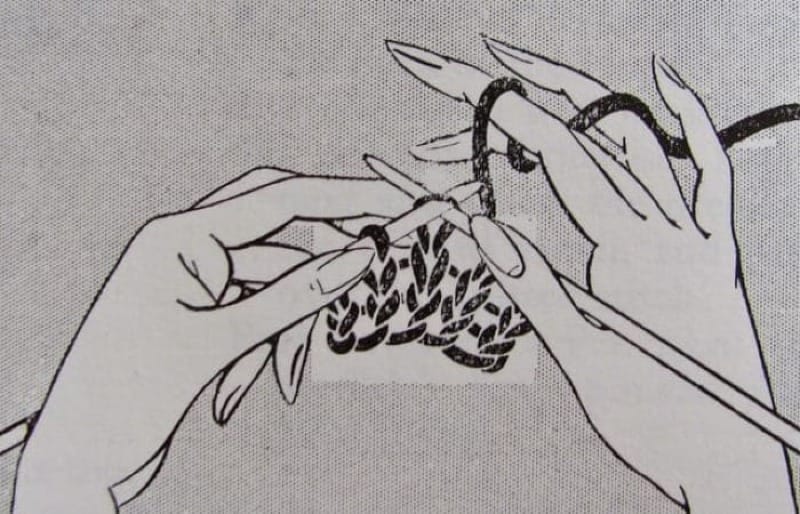The TikTok Girlies Were Right About This Book
Plus Mondrian and physique magazines

I Who Have Never Known Men is my favorite read of the year so far
The waitlist at my library was something like 20 weeks long, and as soon as I was able to download the book, I zoomed through it in two days. The BookTok girlies are right: I Who Have Never Known Men is incredible. I’ve read 17 books since the start of the year, and this lost classic has easily been my favorite.
The short dystopian novel, which was first published in 1995 in Belgium, quickly faded into obscurity. Then in 2018, an employee at publisher Vintage U.K. found an old copy in the office and brought it to the attention of editors there. Tastes in fiction has changed since the ‘90s, and editors saw an opportunity to resurrect the book, complete with an updated English translation from the original translator. A new cover, a new English title that better aligned with the French version, and a couple of viral TikToks later, and the book has found a new audience in the post-#MeToo, post-Donald Trump world.
The novel begins with a group of 39 women and one young girl who are imprisoned in an underground bunker, watched over my male guards. The girl, our narrator, eventually comes to consider herself lucky. Unlike the older women, she has no memories of the outside wold, nothing to reminisce about, nothing over which to feel loss. She muses to herself that she must have had a mother and father, but feels no connection to the past whatsoever.
The women do not know how they came to be in the bunker, where they share meager food scraps and answer nature’s call in an open trough. In fact, the book asks many more questions than it answers. The women assume that the child’s presence is a mistake, since the rest of them are older, but posit that to move her to another facility would mean the trading of information — confirmation that another facility exists, that there are more women out there like them. So, the child stays. The women are not allowed to touch one another, and so no one coddles then child when she cries. No one hugs her. No one raises her.
While the women feel remorse over this, it ends up giving the child an advantage, a ruthlessness she posses that no one else can muster. “I’m different,” she says repeatedly throughout the novel. Unburdoned by the past, she also has the ability to act and think differently when the time comes for action that may save the womens’ lives.
The book has been referred to as The Handmaid’s Tale for Gen Z, but those comparisons are superficial at best. For one, Margaret Atwood goes to great lengths in her novel to explain how Goliad came to be. Jacqueline Harpman, the author of IWHNKM, gives us no context at all.
But plot isn’t even really the point of this book. The point is that the child, untethered from culture, familial obligation, and history, comes to fully know herself as the most distilled version of who she is — brave, strong, intellectually curious, tenacious. It’s also about the ways women come together to support each other, to trade knowledge and love, and how we keep each other going.
This book is bleak, to be sure. There is death, fear, confusion and just the sheer fatigue of a fruitless search for answers. But I found the story ultimately, oddly uplifting as a tale of survival and self-discovery. Its a book I wish I could experience again from the beginning, with no knowledge of where it goes. If you’ve read it, let me know your thoughts int the replies.
Neque class aliquet euismod morbi habitant maecenas; mauris malesuada erat. Vehicula malesuada sit per rutrum neque malesuada lobortis. Porttitor feugiat tempus lectus etiam inceptos libero dolor. Varius morbi proin aliquet mattis sed tellus montes, rutrum magnis. Dis natoque ultrices malesuada habitant eu penatibus donec bibendum. Mattis pellentesque habitant orci litora; finibus fames. Ridiculus fringilla curae quis dignissim euismod rutrum. Donec consectetur ac eu leo libero velit habitasse.
Pretium malesuada tortor rhoncus at vehicula hac. Inceptos sagittis ultrices id urna iaculis. Pretium morbi semper, odio est purus in nam. Urna donec ultricies natoque, hac lacus sit dignissim. Felis ut facilisis ullamcorper hac dolor tempor ante penatibus praesent. Mus nascetur class quis ipsum sociosqu elementum rhoncus suspendisse! Inceptos pretium torquent mi conubia metus non.
Happy Pride Month 🧱
- "A large part of the public had no choice but to encounter the radical idea that hid under the traditional surfaces of his imagery: that two elite men could be in love, or in lust, and might even be the happiest of long-term couples." — J.C. Leyendecker: The ‘Arrow Collar Man’ Who Hid a Radical Idea, NYT
- "Their readers recognized what we now think of as a “gay gaze”: appreciative, even avid, but not uncritical; at once warm, cool, and knowing." — The Secrets of Physique Magazines, NYer
- A fascinating Reddit thread: Why do cartoon and other depictions of knitting show people holding needles like this? One answer:
It was also done as a way to show off ones dainty little lady hands. The point wasn't really the making of an object but the performance of being both industrious yet ladylike.
- "Captain Robert Falcon Scott’s doomed journey to the South Pole captivated the world. But hidden within the legend was a story that has never been told—a love affair between two of the crew who survived." — From Antarctica with Love, Atavist
- Great TikTok about how clear bag policies at concerts and other stadium events are about punishing women for men's actions.
- I loved these visuals breaking down the work of painter Piet Mondrian. — One Painting Got Me Through Winter, NYT
That’s all for today. I love you, thanks for reading.




